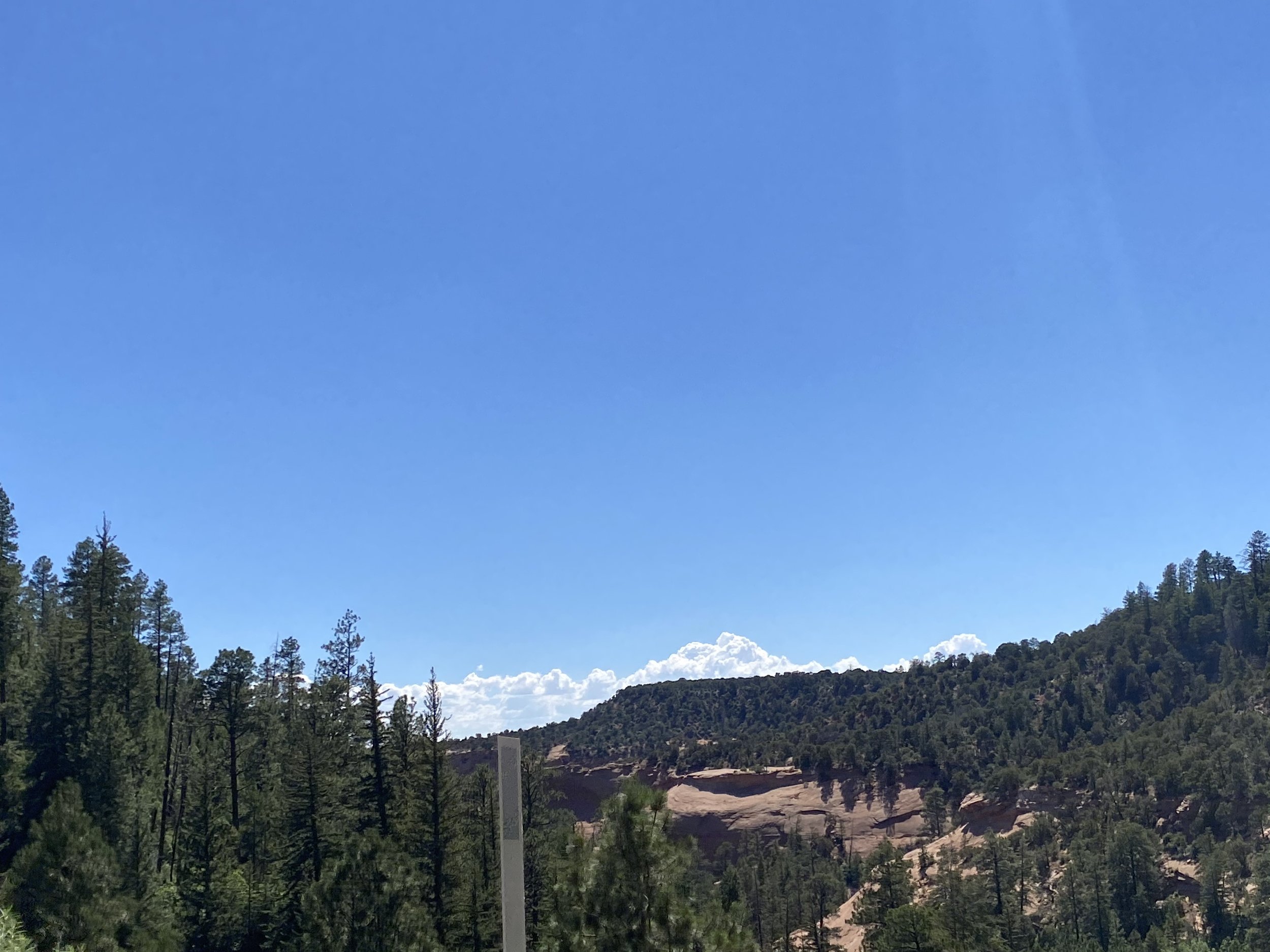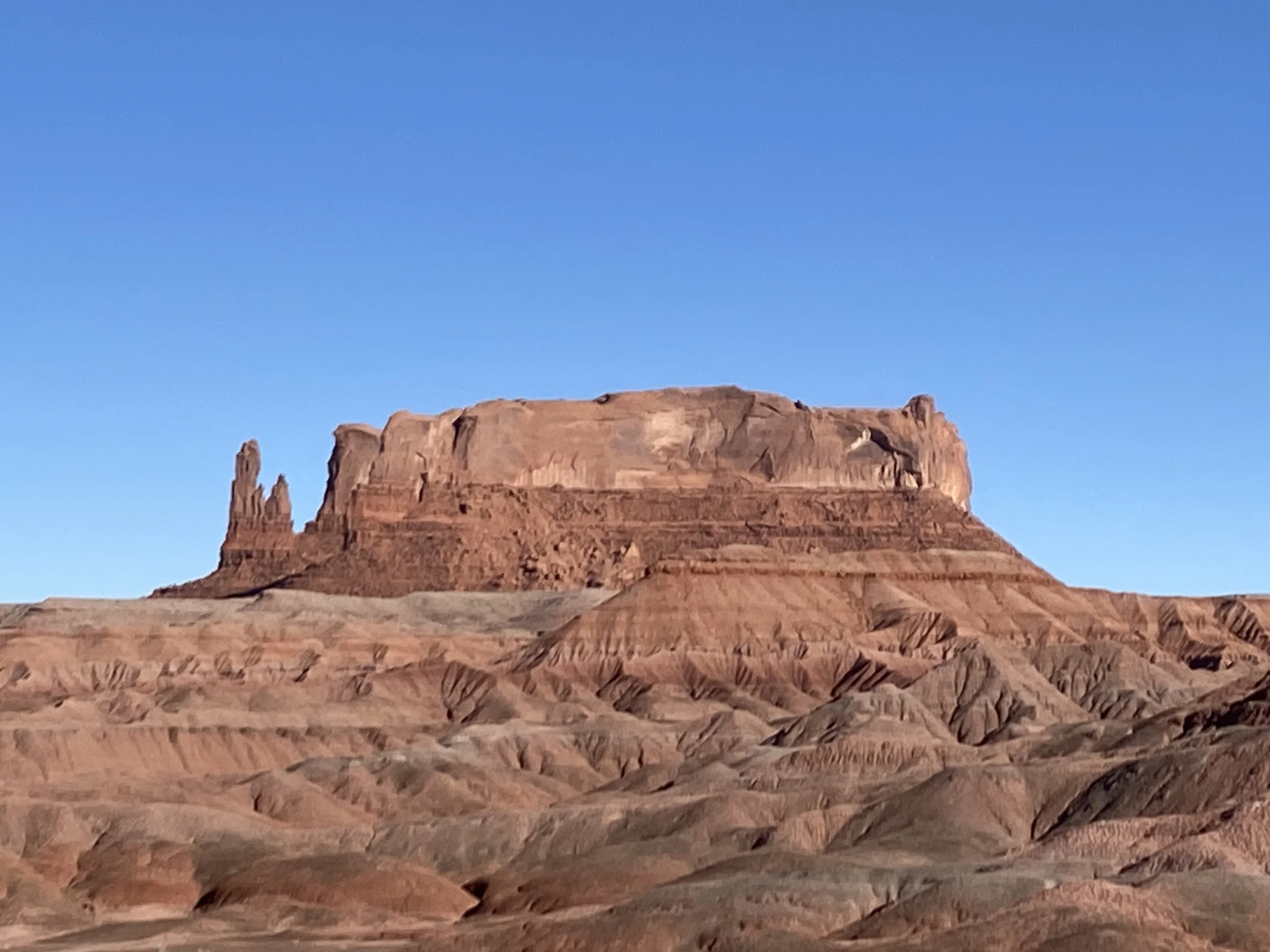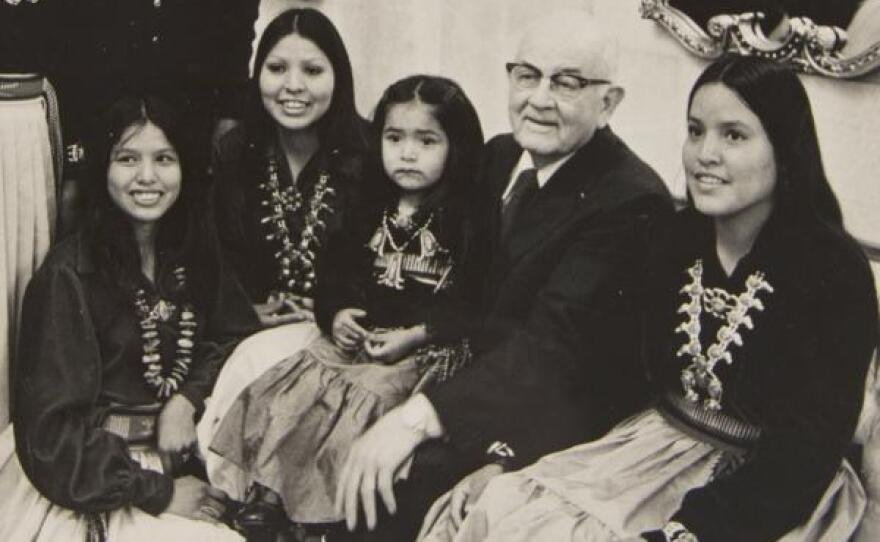
Oral History Project
Collaborate in research. Contribute to history. Celebrate survivance. Tell your story.
Document-Based & Oral Histories of Diné Experiences in the Mormon Indian Student Placement Program
This Navajo Nation Human Research Review Board approved dissertation research project aims to contribute to a greater understanding of Diné education history of which the Mormon Placement Program was a part. While the research relies on collecting archival documents related to the Placement Program, it also relies heavily on the first-hand accounts of Diné who were at one time enrolled, and may even include their family members (parents, siblings, kin). Interested in getting involved? Submit your information using the form at the bottom of the page or contact Nathan Tanner directly via email or phone.
The Mormon Indian Student Placement Program
From 1947 to 2000 tens of thousands of Indigenous children and youth—mostly Diné—were removed from their homes to participate in the Mormon Indian Student Placement Program. At its height in the 1960s, this church and government sanctioned educational program relied on missionary recruitment and bussed children away from home to attend school, just as off-reservation boarding schools had done for decades. Diné children were bussed to Mormon chapels around the United States before being placed with white Mormon foster families. While many Diné enrolled in the Placement Program to gain an education, the history, philosophy, politics, and purposes of the Placement Program extend far beyond simply providing educational opportunities. This oral history research project intends to document the first-hand experiences of Diné adults (and their relatives) from four communities in Chinle Agency who were enrolled or involved with the Placement Program during its half century of operation.
NNHRRB & NNHHPD Approved
With the generous support of the Chinle, Many Farms, Rough Rock, and Round Rock chapters and community members, this dissertation research project has been approved by the Navajo Nation Human Research Review Board and the Navajo Nation Heritage & Historic Preservation Department.
Resources & Supports
Because of the nature of this research study which involves the recounting of personal stories associated with prolonged family separation and/or affiliated trauma(s), it is important to share resources and supports available to those looking to get involved with this research study. The Navajo Nation Division of Behavioral and Mental Health Services (NNDBMHS) offers a variety of behavioral and mental health services should you feel you need them.
A complete list of services and treatment options provided by NNDBMHS is available through their website and portal accessible here. This includes comprehensive, clinically and/or traditionally managed services for adults who may be suffering from substance abuse/dependence, hopelessness, or experiencing suicidal thoughts. NNDBMHS is committed to empowering individuals, families, and communities to make positive choices to restore hope, self-sufficiency, determination, resiliency, and healing.
The closes physical location to community members living in Chinle Agency is in the Chinle Chapter. Their physical address, phone number, and hours of operation are provided below:
East of Chinle Chevron Station, off of Navajo Route 7 & BIA Road 102-1. Building #c012-118.
Regular Hours of Operation: Monday - Friday (8am - 5pm) | (982) 674-2190
After Hours & Weekends: (928) 551-0247
FAQs
-
This NNHRRB & NNHPD approved research study currently includes those community members and their kin who belong to the Chinle, Many Farms, Rough Rock, and Round Rock Chapters.
-
As a student researcher I am committed to doing my utmost to uphold the highest standards of transparency, methodological integrity, as well as meet the ethical obligations of the University of Illinois, Navajo Nation, and my own personal integrity; however, it is important to acknowledge that all research is susceptible to potential risk.
Diné/Navajo who were enrolled in the Mormon placement program did suffer prolonged family separation, and thus recounting memories associated with their educational experiences may trigger complex and potentially difficult emotional responses.
-
The principal benefits to those who consent to participate in the research project are equivalent to those outlined by both Drs. Brenda Child (Ojibwe) and Denise Lajimodiere (Turtle Mountain Band of Chippewa) in their respective intergenerational studies of federal and private religious boarding school survivors. The first benefit to participants is the opportunity to share their stories and voices, through which they will be able to stop repressing feelings of anger, anxiety, confusion, etc. and work towards healing. In other words, the participants will be able to break their silence about their experience(s) and release the associated traumas which can be a source of psychological and spiritual healing.
The second benefit for participants involved in this study is that they will get to collaborate in the research process, which includes exercising decision making about the direction of research questions, counter narrative interpretation, and in the presentation of the research.
-
1) You can complete the Oral History Intake form at the bottom of this page or contact Nathan Tanner directly.
2) Nathan Tanner will contact you and send you an interview consent form for your review and signature.
3) Nathan Tanner will work to schedule either a 1:1 or focus group oral history interview with you.
*This study requires that participants sit for at least one oral history interview lasting approximately one hour in duration.
-
In order to participate in and before you sit for an oral history interview, you must sign a consent form.
Oral history interviews will be conducted 1:1 or in a focus group format to accommodate family desires and needs as well as to account for the intergenerational aspects of the Placement Program.
All oral history interviews will take approximately 60-90 minutes, and focus groups will include three to five participants. Oral History interviews will be held in person or via Zoom depending on participants’ comfort level and needs.
This research study will adhere to the Principles and Best Practices of the Oral History Association for conducting oral history research and protecting human subjects. Because of the technical standards of scholarship for history and oral history and their related disciplines, ethics, and preservation, anonymity cannot be provided to research participants. This means that participants’ names will be associated with the oral testimony they provide in interviews and/or focus groups. That said, the Oral History Association (OHA) urges oral historians to be sensitive to community desires and needs. In this regard, member checking of transcript data—which will be used in conjunction with this project—can assist in the avoidance of stereotypes, misrepresentations, and manipulations of a narrators’ words that are archived in accordance with OHA protocols.
Participation in this research study is completely voluntary. Any participant is welcome to opt-out or withdraw from the research study at any time without penalty.
Get Involved
By completing the oral history intake form below you can get involved and collaborate in the oral history project. Submitting your information below does not mean you have to participate in the research, but will indicate your interest in the study and provide Nathan Tanner with the information he needs to present you with more information about the project, including interview consent forms (which are required to participate in this research study). Ahéhee!




